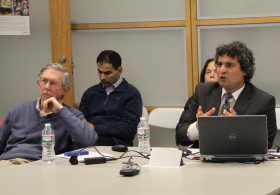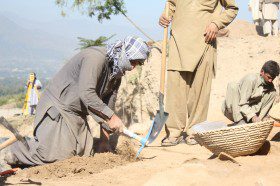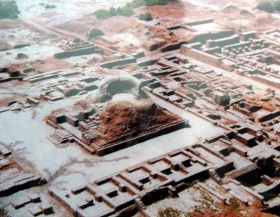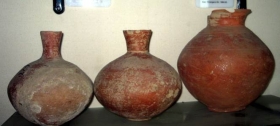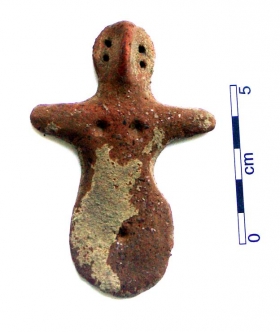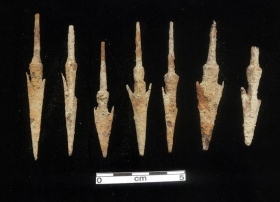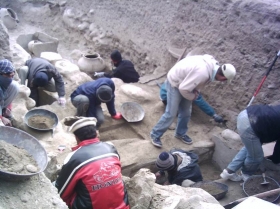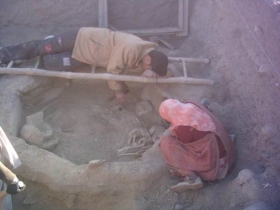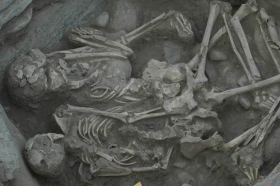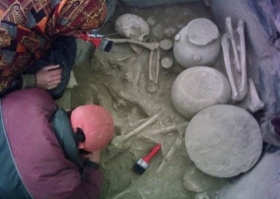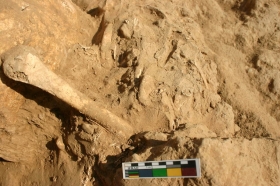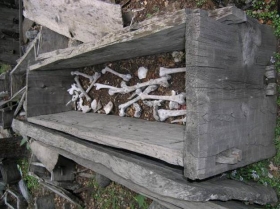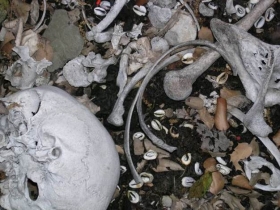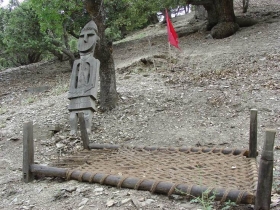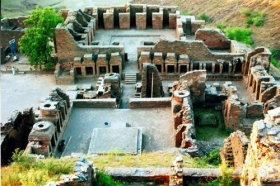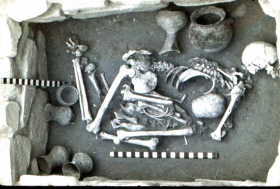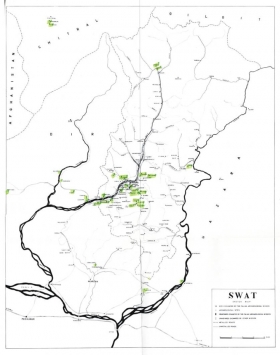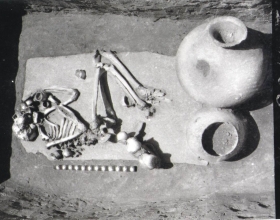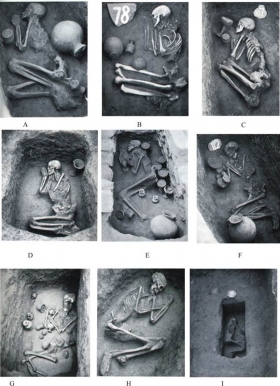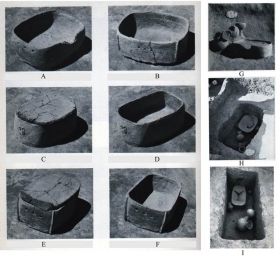On Thursday, May 1, Muhammad Zahir, SAI’s Aman Fellow for the spring semester, shared his ongoing archaeology research at a seminar titled ‘Modern Ethnicities and Ancient Graves: The Deconstruction and Re-Analysis of the Protohistoric Cemeteries and Ethnic Origin Stories in Pakistan.’
The seminar was chaired by Richard Meadow, Director of the Zooarchaeology Laboratory at the Harvard Peabody Museum, Senior-Lecturer in Anthropology at Harvard, and Project Director of the Harappa Archaeological Research Project, who has served as Zahir’s mentor at Harvard, and has been excavating sites in Pakistan since 1974.
Since 2001, Zahir has been extensively involved in different archaeological excavations and surveys, publications, and museums’ documentation and management projects both in Pakistan and abroad. He has also worked in the development and implementation of the UNESCO project for the preservation of the endangered movable cultural assets of Gandhara art in Pakistan.
Zahir has used the resources at Harvard to deconstruct and conduct a genealogical analysis of the concepts of Aryans in Pakistan archaeology; its use in the interpretation of archaeological remains, ethnic identities, and the personal and professional interests of archaeologists/academics involved, and the state patronage, and acceptance in Pakistan.
Zahir started the seminar by saying that he considers Pakistan the country with the richest archaeological history, given its strategic location for migration on the subcontinent. Zahir explained the Indus Civilization as the first large-scale urbanization in South Asia. Most of Zahir’s talk focused on protohistoric cemeteries and the Gandhara grave culture in Pakistan’s Swat Valley.
These gravesites shed light on the burial practices and cremation customs of the various cultures in the region. Studying the pottery, human figurines and iron implements found at the sites has informed his research, and his work has debunked many of the commonly supported theories on archaeology in Pakistan. Meadow explained that the growth and evolution of technology in the last 10 to 15 years will help understand more of these paradigms.
Zahir is SAI’s inaugural Aman Fellow, an opportunity that supports recent PhDs and advanced professional degree holders in areas related to Pakistan, particularly areas of science and development.
“I am honoured to have been selected as the First Aman Fellow at Harvard South Asia Institute,” Zahir said about the position. “It provided me an opportunity to take advantage of Harvard’s resources for my research and to connect with leading academics and researchers in the world. I discovered new avenues for my research and I will be following these leads in my academic career. I also used this opportunity to develop and submit different proposals for my future research projects in Pakistan and abroad”.
Of Dr. Zahir, Meadow wrote, “He has both the possibility and dedication to raise the bar quite significantly on the quality of archaeological work, interpretation, and instruction that is done in Pakistan, which would be a great boon to the country. He is developing a public presence within Pakistan and promises to be an important spokesman for the importance of the study and the preservation of the past for Pakistan’s future…”
Read more about the Aman Fellowship.
See the photo gallery below for photos from Zahir’s seminar:

